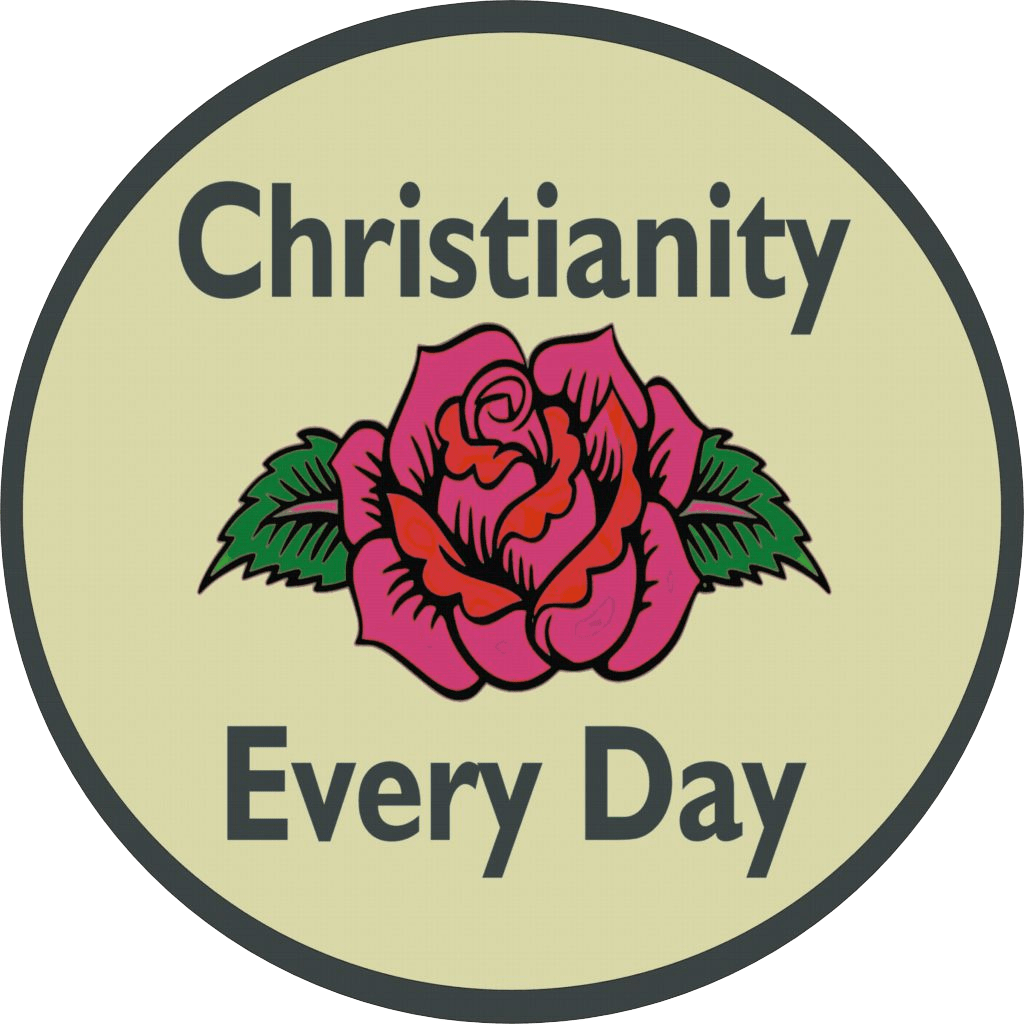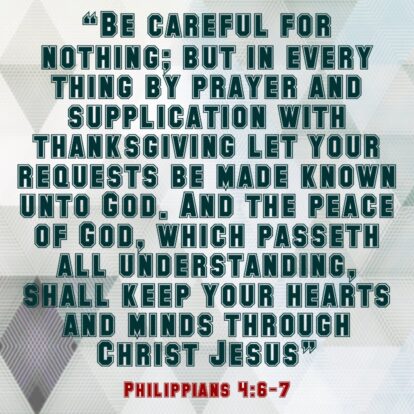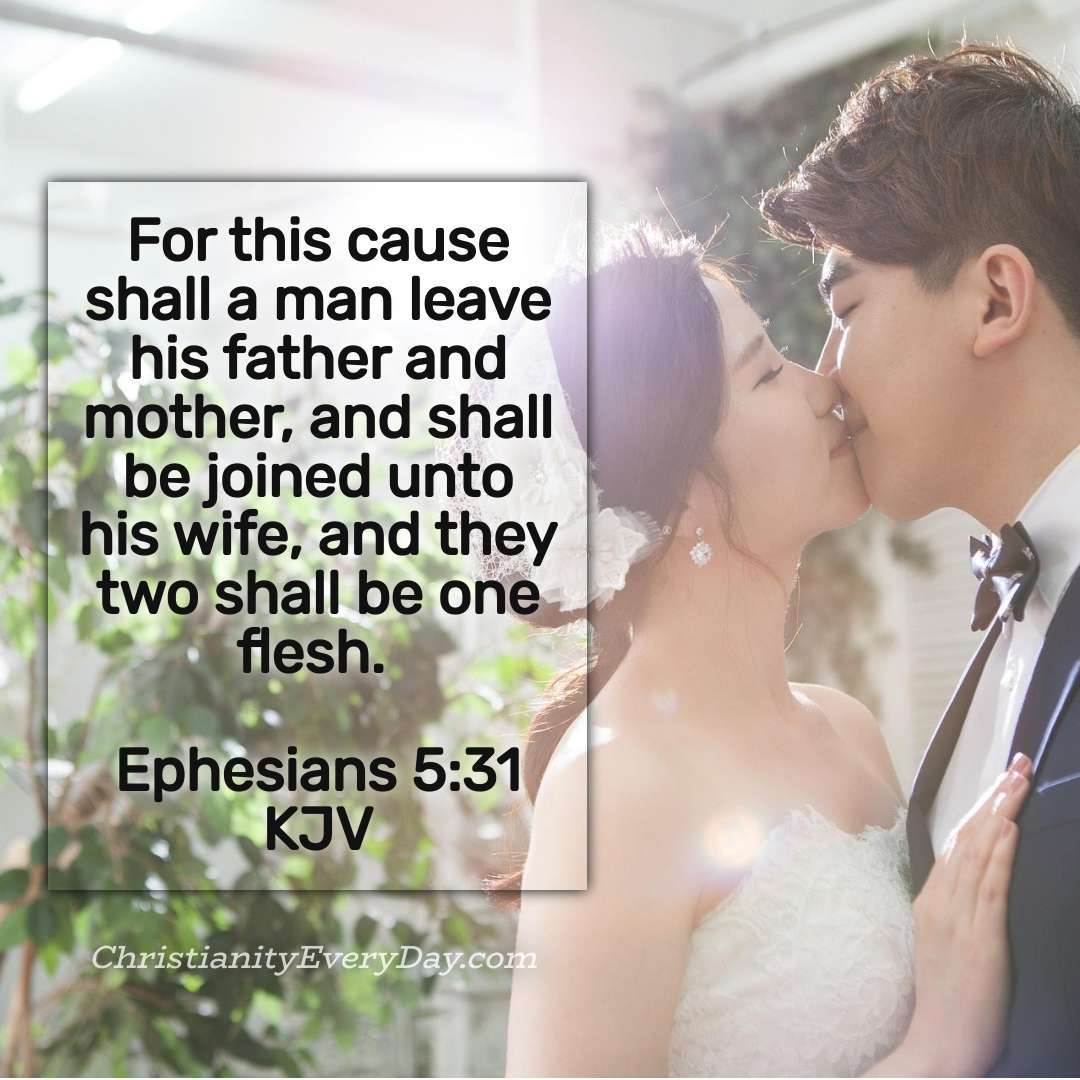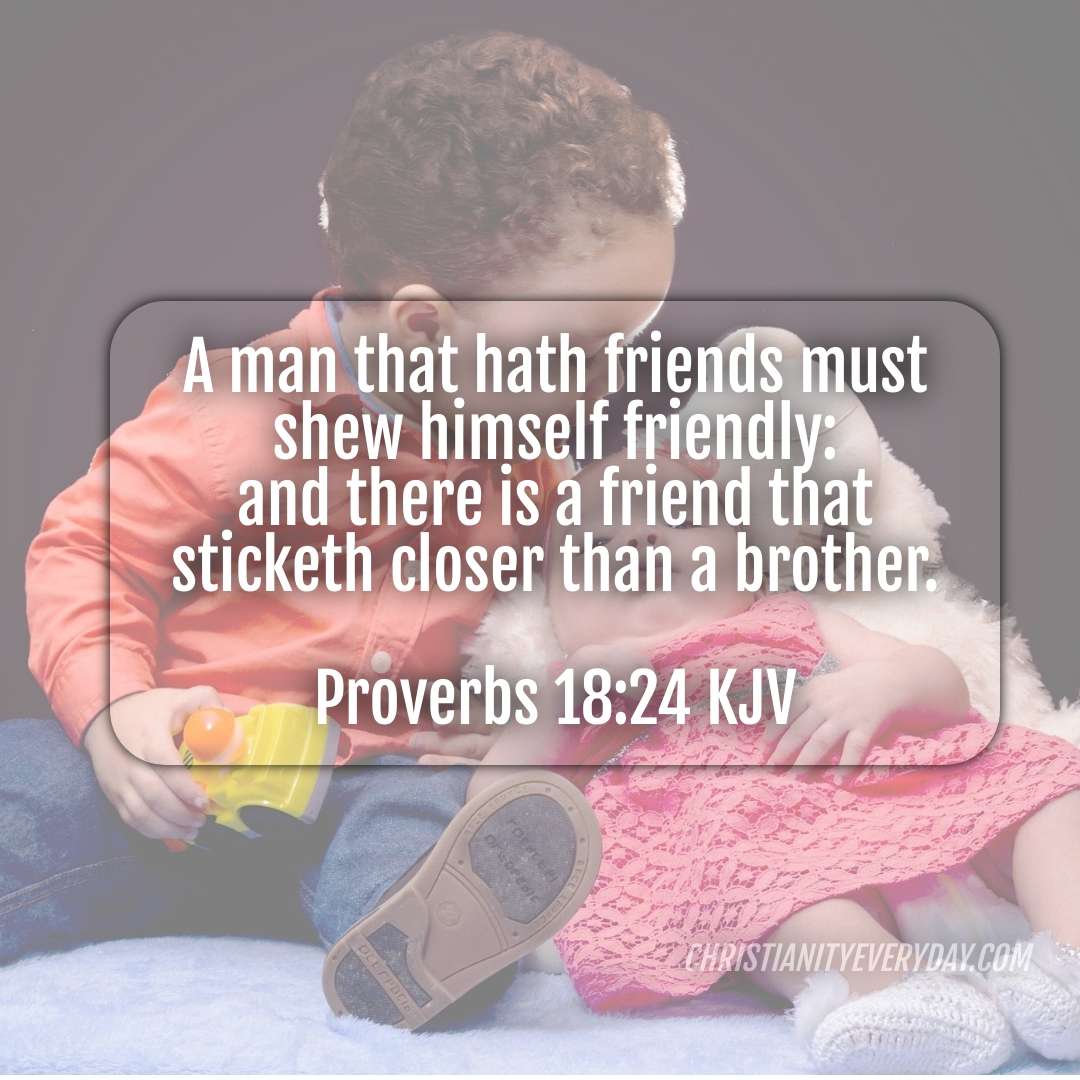What does the Bible say we should do if someone is offended?
We live in a world where people get offended by just about anything. In many cases, people will take an innocent comment and claim that the person making the comment is some sort of “phobic” person. They will often go a step farther and use vulgar language to claim the person making the comment is motivated by “hate”. Sadly, most responding to these types of accusations will do so in such a way that is just as vulgar. Should we apologize if we do something that offends someone?
What does it mean when we say something is offensive?
Webster’s Definition of offensive or offense
Before we get started, let’s look at what it is that makes something an offense or offensive. When looking at the word, offense or offensive, sometimes we see it spelled as offence or offences. Depending on where it is written will also determine what form may be used. Generally, offence with a “C” is common to the United Kingdom (the KJV Bible also uses a “C”). Offense with an “S” is common to the United States. A way to generally remember each one is that the one with a “C”, and common to the U.K. can be compared to the “C” in the word crown of the King or Queen. The one with an “S”, and common to the U.S. can be compared to the “S” in the word States. Now that we have that straight, let’s look at some definitions.
To get the most original definition of the word offensive, we can look it up in Webster’s 1828 Dictionary to see it is defined as follows (1):
OFFENS’IVE, adjective. 1. Causing displeasure or some degree of anger; displeasing. All sin is offensive to God. Rude behavior is offensive to men. Good breeding forbids us to use offensive words. 2. Disgusting; giving pain or unpleasant sensations; disagreeable; as an offensive taste or smell; an offensive sight. discordant sounds are offensive to the ears. 3. Injurious.
It is pretty clear that something that is offensive causes some degree of anger or displeasure and is commonly seen as disgusting or unpleasant. Of particular note in the definition is that “Good breeding forbids us to use offensive words”, This has nothing to do with conceiving children, it is referring to the “nurturing and education” aspect of the word breeding (2). In other words, training up a child to not be offensive:
Proverbs 22:6. “Train up a child in the way he should go: And when he is old, he will not depart from it.”
This is an important factor when training and educating in the ways of dealing with things that are offensive in a secular sense.
Biblical Definition of offensive or offense
Biblically, the word offense is referred to something wrong that is done to someone. We see this in the Old Testament as follows:
1 Samuel 25:23–24, 31. “And when Abigail saw David, she hasted, and lighted off the ass, and fell before David on her face, and bowed herself to the ground, And fell at his feet, and said, Upon me, my lord, upon me let this iniquity be: and let thine handmaid, I pray thee, speak in thine audience, and hear the words of thine handmaid….31. That this shall be no grief unto thee, nor offence of heart unto my lord, either that thou hast shed blood causeless, or that my lord hath avenged himself: but when the LORD shall have dealt well with my lord, then remember thine handmaid.”
We see in this passage that reference is made of a discussion between David and his wife Abigail, concerning a situation she thought where there would be an offense to David. Here, the Hebrew word used is described in Strongs Hebrew and Greek Concordance as follows:
Offense (3): Usage Notes: English Words used in KJV: stumblingblock 8, offence 2, ruins 2, offend 1, fall 1. or mikshol, mik-shole’; masculine from <H3782> (kashal); a stumbling-block, literal or figurative (obstacle, enticement [specifically an idol], scruple):- caused to fall, offence, × [no-] thing offered, ruin, stumbling-block.
Biblically, we see this in the New Testament as follows:
Matthew 18: 2-7. “And Jesus called a little child unto him, and set him in the midst of them, And said, Verily I say unto you, Except ye be converted, and become as little children, ye shall not enter into the kingdom of heaven. Whosoever therefore shall humble himself as this little child, the same is greatest in the kingdom of heaven. And whoso shall receive one such little child in my name receiveth me. But whoso shall offend one of these little ones which believe in me, it were better for him that a millstone were hanged about his neck, and that he were drowned in the depth of the sea. Woe unto the world because of offences! for it must needs be that offences come; but woe to that man by whom the offence cometh!”
We see in the passage in Matthew 18, there are several variations of the word offense as related to offending children as found in Strong’s Hebrew and Greek Concordance as follows:
Offend (4). Usage Notes: English Words used in KJV: offend 28, make to offend 2, (“scandalize”); from <G4625> (skandalon); to entrap, i.e. trip up (figurative stumble [transitive] or entice to sin, apostasy or displeasure):- (make to) offend.
Offence (5). Usage Notes: English Words used in KJV: offence 9, stumbling block 3, occasion of stumbling 1, occasion to fall 1, thing that offends 1, (“scandal”); probably from a derivative of <G2578> (kampto); a trap-stick (bent sapling), i.e. snare (figurative cause of displeasure or sin):- occasion to fall (of stumbling), offence, thing that offends, stumblingblock.
Overall, we see that something that is an offense or offensive is something that is a wrong done to someone or figuratively causes them to fall, stumble, or scandalizes them.
How do we know what is offensive and what is not?
This is where there is much disagreement, because it is apparent that many people see anything they disagree with as offensive. As with all things in life, we must look to Scripture to see what is taught to us. As we saw earlier, the Bible mentions offensives as stumbling blocks or things that cause us to stumble or figuratively lose our balance. This can be seen in two ways:
1. People can be offended or stumble and be broken because they do not want to hear or follow the truth of the Lord:
Isaiah 8:13-15. “Sanctify the LORD of hosts himself; And let him be your fear, and let him be your dread. And he shall be for a sanctuary; But for a stone of stumbling and for a rock of offence to both the houses of Israel, For a gin and for a snare to the inhabitants of Jerusalem. And many among them shall stumble, and fall, and be broken, And be snared, and be taken.”
2. People can be an offense or offender when they stand in the way of God’s will, or it causes them to stumble:
Matthew 16:21-23. “From that time forth began Jesus to shew unto his disciples, how that he must go unto Jerusalem, and suffer many things of the elders and chief priests and scribes, and be killed, and be raised again the third day. Then Peter took him, and began to rebuke him, saying, Be it far from thee, Lord: this shall not be unto thee. But he [Jesus] turned, and said unto Peter, Get thee behind me, Satan: thou art an offence unto me: for thou savourest not the things that be of God, but those that be of men.”
Matthew 18:7. “Woe unto the world because of offences! for it must needs be that offences come; but woe to that man by whom the offence cometh!”
We see from these Biblical passages that offenses, or being offended, is based on the standards given in God’s Word and are in line with His will. This is important to know because there must be a standard of what is or is not offensive, so everyone knows what qualifies as an offense.
What does God say is right and wrong and offensive or not?
The bottom line when it comes to what is offensive or not is based on what God says, not man. Because man can claim that something is not a sinful offense when God says it is. With this in mind, we must follow what God says, regardless of what man says when it comes to offenses. We can see a practical explanation of this when looking at how the first sin in the world happened in the Garden of Eden by Eve and Adam, which ended up being an offense to the whole world:
Romans 5:12–21. “Wherefore, as by one man sin entered into the world, and death by sin; and so death passed upon all men, for that all have sinned: 13 (For until the law sin was in the world: but sin is not imputed when there is no law. 14 Nevertheless death reigned from Adam to Moses, even over them that had not sinned after the similitude of Adam’s transgression, who is the figure of him that was to come. 15 But not as the offence, so also is the free gift. For if through the offence of one many be dead, much more the grace of God, and the gift by grace, which is by one man, Jesus Christ, hath abounded unto many. 16 And not as it was by one that sinned, so is the gift: for the judgment was by one to condemnation, but the free gift is of many offences unto justification. 17 For if by one man’s offence death reigned by one; much more they which receive abundance of grace and of the gift of righteousness shall reign in life by one, Jesus Christ.) 18 Therefore as by the offence of one judgment came upon all men to condemnation; even so by the righteousness of one the free gift came upon all men unto justification of life. 19 For as by one man’s disobedience many were made sinners, so by the obedience of one shall many be made righteous. 20 Moreover the law entered, that the offence might abound. But where sin abounded, grace did much more abound: 21 That as sin hath reigned unto death, even so might grace reign through righteousness unto eternal life by Jesus Christ our Lord.
If we look deeper at this passage in Romans 5, we see several things that God says about right and wrong when it comes to offenses:
- The wrongness of sin is an offense to everyone: Romans 5:12
- There is a standard of what is an offense and not an offense: Romans 5:13
- Even those that have not sinned as Adam have to suffer the offense of death: Romans 5:14
- The offense of sin to the death of many was started by one man, Adam; The gift of grace to many from that offense is by one man, Jesus Christ: Romans 5:15-17
- The offense of one (Adam) caused judgment of condemnation which came upon all; By the righteousness of one the free gift came upon all to justify eternal life. Romans 5:18
- The disobedience of one (Adam) made many sinners; the obedience of one shall make many righteous. Romans 5:19
- The law entered the world and offensiveness abounded; where sin abounded, grace abounded more. Romans 5:20
- As the offense of sin has reigned to death; even so might grace overrule the offense of sin through righteousness to eternal life by Jesus Christ our Lord. Romans 5:21
The bottom line when it comes to what is offensive or not is based on what God says, not man. With this in mind, we must follow what God says, regardless of what man says when it comes to offenses. However, we will also see that God has a way to deal with offenses, through Jesus Christ.
How did sin and offense start in the world?
In the beginning, as God created the heavens and the earth, Satan quickly tried to ruin God’s perfect creation. He created the false claim that what we want, no matter how “good or bad,” can be the standard of what is or is not offensive despite what God says.
Digging a little deeper into what we just read Romans 5:12-21 says, we can see the first debate over what an offense was took place in the Garden of Eden with an attack on Adam’s wife, Eve. We learn that God gave one commandment to Adam. That commandment was to not eat from the Tree of Knowledge of Good and Evil as follows:
Genesis 2:15–17. “And the LORD God took the man, and put him into the garden of Eden to dress it and to keep it. And the LORD God commanded the man, saying, Of every tree of the garden thou mayest freely eat: But of the tree of the knowledge of good and evil, thou shalt not eat of it: for in the day that thou eatest thereof thou shalt surely die.”
One thing to note is that when Adam was given this commandment, Eve was not yet created, which happened not long after in Genesis 2:20-25. It was right after her creation that Satan began his attack upon mankind by deceiving Eve to break that one commandment. We see her response to Satan’s attack as follows:
Genesis 3:1–6. “Now the serpent was more subtil than any beast of the field which the LORD God had made. And he said unto the woman, Yea, hath God said, Ye shall not eat of every tree of the garden? And the woman said unto the serpent, We may eat of the fruit of the trees of the garden: But of the fruit of the tree which is in the midst of the garden, God hath said, Ye shall not eat of it, neither shall ye touch it, lest ye die. And the serpent said unto the woman, Ye shall not surely die: For God doth know that in the day ye eat thereof, then your eyes shall be opened, and ye shall be as gods, knowing good and evil. And when the woman saw that the tree was good for food, and that it was pleasant to the eyes, and a tree to be desired to make one wise, she took of the fruit thereof, and did eat, and gave also unto her husband with her; and he did eat.“
Notice here that Satan did not approach Adam, he approached Eve. This is a perfect example of why it is important for us to teach each other what God says is or is not a sin or offense. Although Eve was not even created when Adam received the commandment, she knew that God said not to eat from the tree, or they would die. However, no where do we see that God said not to touch it, or they would also die. Remember, in Genesis 2:15-17, Adam was tasked with dressing and keeping the garden, so it is likely that he had to touch the tree but was forbidden to eat the fruit of the tree.
So, what we find is there is some confusion with Eve over exactly what the law, or God’s commandment was. This then led to Satan’s deception and rationalization of why breaking the law was not an offense against God and she believed Satan. The sad part is that we see that as Eve was deceived, Adam did nothing about it! He did not correct Eve, nor tell her not to eat the fruit, or redirect her to something she could eat that was not illegal or offensive. This is despite the fact that he was not deceived by Satan, but as we just read in Romans, and see here, his act resulted in an offense upon all of humanity:
1 Timothy 2:13–14. “For Adam was first formed, then Eve. And Adam was not deceived, but the woman being deceived was in the transgression.”
1 Corinthians 15:21-22. “For since by man came death, by man came also the resurrection of the dead. For as in Adam all die, even so in Christ shall all be made alive.”
Unfortunately, this single event was ultimately an offense to humanity, which shows us how one offense can also have fallout in many different ways to others that were not even involved.
On the other hand, another thing to note is the way Satan deceived Eve to ignore what God commanded. He told her God was wrong and that if she ate the fruit she would be like “gods, knowing good and evil” after which he then appealed to her lust of the flesh, lust of the eyes, and pride of life to do it:
Genesis 3:5-6. “For God doth know that in the day ye eat thereof, then your eyes shall be opened, and ye shall be as gods, knowing good and evil. And when the woman saw that the tree was good for food, and that it was pleasant to the eyes, and a tree to be desired to make one wise, she took of the fruit thereof, and did eat,…”
These three lusts are the temptations that are the root of all sin and offenses as follows:
1 John 2:15–17. Love not the world, neither the things that are in the world. If any man love the world, the love of the Father is not in him. For all that is in the world, the lust of the flesh, and the lust of the eyes, and the pride of life, is not of the Father, but is of the world. And the world passeth away, and the lust thereof: but he that doeth the will of God abideth for ever.
What can we learn from how Satan tempts us to offend?
We can then see how Satan deceived the woman about what God said, then used these three lusts to tempt Eve to believe Him and do something different than what God wanted her to do. Digging deeper, we see three ways he tempted her and also tempts us to sin or commit offenses to God and others:
- The tree was good for food: “Lust of the flesh” temptation to satisfy a fleshly desire. Satisfying physical pleasures in ways that God’s does not approve. Examples: Gluttony, adultery, pornography, drugs, alcohol, or any other sinful physical pleasures
- The tree was pleasant to the eyes: “Lust of the eyes” temptation to satisfy an emotional desire to possess something we want to make us feel good in ways that God does not approve. Examples: Theft, obsession with becoming rich above all things, stockpiling possessions, ignoring the physical needs of others or any other emotionally sinful driven desires to possess things
- The tree was “desired to make one wise”: “Pride of life” temptation to satisfy a spiritual desire to be someone that is looked up to as being better looking, smarter, popular, hold higher positions, more powerful, or any other ways that draw attention from others to us in ways God does not approve
Notice, these offenses are produced by “seductions” to offend based on physical, emotion, and spiritual temptations. We see these three also connected to the conception of sin and death as follows:
James 1:12–16. Blessed is the man that endureth temptation: for when he is tried, he shall receive the crown of life, which the Lord hath promised to them that love him. Let no man say when he is tempted, I am tempted of God: for God cannot be tempted with evil, neither tempteth he any man: But every man is tempted, when he is drawn away of his own lust, and enticed. Then when lust hath conceived, it bringeth forth sin: and sin, when it is finished, bringeth forth death. Do not err, my beloved brethren.
When we break down these methods of tempting us to sin or offend, we see a pattern. We do what we do, because we feel what we feel, because we think what we think.
- We do what we do: Our behavior
- Because we feel what we feel: Our lusts or desires that motivate us
- Because we think what we think: Our knowledge of what is or is not right or wrong
Therefore, we see that the root of all behaviors and offenses, righteous or sinful, is what we think about what is right or wrong. The motivator of our behaviors is the physical, emotional, and spiritual feelings or desires we have that motivate us to do what is right or wrong.
What is the right way to become less offensive?
We must understand that actions we take are often based on either doing what will satisfy our feelings or God. We can see then that to do what is right comes down to learning what is right and doing it regardless of what our feelings tell us. This is because we are cursed with the desire to sin that we inherited from Adam. We can go on and on about offenses and being offended, but the standard is defined by God and not man. So, what do we do then when it comes to living in a world where people are offended by everything?
We start by developing a deep love for God by learning about His love for us
The first step in knowing what God says about being offended is first learning to love God, which motivates us to want to learn about Him and please Him and others out of love and appreciation for what He did for us through His Son Jesus Christ as follows:
1 John 4:15–19. “Whosoever shall confess that Jesus is the Son of God, God dwelleth in him, and he in God. And we have known and believed the love that God hath to us. God is love; and he that dwelleth in love dwelleth in God, and God in him. Herein is our love made perfect, that we may have boldness in the day of judgment: because as he is, so are we in this world. There is no fear in love; but perfect love casteth out fear: because fear hath torment. He that feareth is not made perfect in love. We love him, because he first loved us.”
We learn what is offensive through regular study of the Bible
Using God’s Word as the basis of right and wrong, truth and error, and offensive or not offensive, is the foundation of how we handle offenses. This is where our knowledge and understanding of Scriptures come in. The first thing is to ask is if we have the ability to understand Scripture? Are we saved? If not, or we don’t know, we need to find out if we “Got Jesus.“
If so, then God has given us the power and ability to understand Scripture by the indwelling of the Holy Spirit given to us the moment we trust Christ as our Savior as follows:
- God’s wisdom comes from the Word of God not man: 1 Corinthians 2:1-5. “And I, brethren, when I came to you, came not with excellency of speech or of wisdom, declaring unto you the testimony of God. For I determined not to know any thing among you, save Jesus Christ, and him crucified. And I was with you in weakness, and in fear, and in much trembling. And my speech and my preaching was not with enticing words of man’s wisdom, but in demonstration of the Spirit and of power: That your faith should not stand in the wisdom of men, but in the power of God.”
- God’s wisdom is hidden and a mystery to the world: 1 Corinthians 2:6–9. “Howbeit we speak wisdom among them that are perfect: yet not the wisdom of this world, nor of the princes of this world, that come to nought: But we speak the wisdom of God in a mystery, even the hidden wisdom, which God ordained before the world unto our glory: Which none of the princes of this world knew: for had they known it, they would not have crucified the Lord of glory. But as it is written, Eye hath not seen, nor ear heard, neither have entered into the heart of man, the things which God hath prepared for them that love him.”
- God wisdom of His Word is revealed to us by His Holy Spirit: 1 Corinthians 2:10–13. “But God hath revealed them unto us by his Spirit: for the Spirit searcheth all things, yea, the deep things of God. For what man knoweth the things of a man, save the spirit of man which is in him? even so the things of God knoweth no man, but the Spirit of God. Now we have received, not the spirit of the world, but the spirit which is of God; that we might know the things that are freely given to us of God. Which things also we speak, not in the words which man’s wisdom teacheth, but which the Holy Ghost teacheth; comparing spiritual things with spiritual.”
- God’s Wisdom is not revealed to those that have not trusted Christ as their Savior: 1 Corinthians 2:14–16. “But the natural man receiveth not the things of the Spirit of God: for they are foolishness unto him: neither can he know them, because they are spiritually discerned. But he that is spiritual judgeth all things, yet he himself is judged of no man. For who hath known the mind of the Lord, that he may instruct him? But we have the mind of Christ.”
For more on this and how to study the Bible check out the following:
As we seek God’s truth in knowing what is right, we must adopt the motto: “When we know the normal, the abnormal stands out.” This means that we must seek the truth of what is or is not offensive by regularly studying God’s Word to see what He says is normal as follows:
2 Timothy 2:15–16. “Study to shew thyself approved unto God, a workman that needeth not to be ashamed, rightly dividing the word of truth. But shun profane and vain babblings: for they will increase unto more ungodliness.”
We learn how to be focused on what God wants and not what we want
In consideration of all these things, God’s Word determines what we should believe is an offense and what is not an offense. With this in mind, what can we expect when it comes to being offended? God tells us as follows:
- Those that love God have peace and nothing offends them. Psalm 119:165. “Great peace have they which love thy law: And nothing shall offend them.”
- Those that are offended are hard to reconcile with. Proverbs 18:19. “A brother offended is harder to be won than a strong city: And their contentions are like the bars of a castle.”
- Intensive efforts should be taken to stop Biblically offensive behaviors. Matthew 5:27–30. “Ye have heard that it was said by them of old time, Thou shalt not commit adultery: But I say unto you, That whosoever looketh on a woman to lust after her hath committed adultery with her already in his heart. And if thy right eye offend thee, pluck it out, and cast it from thee: for it is profitable for thee that one of thy members should perish, and not that thy whole body should be cast into hell. And if thy right hand offend thee, cut it off, and cast it from thee: for it is profitable for thee that one of thy members should perish, and not that thy whole body should be cast into hell.
- Those not offended by the Words and works of God are blessed. Matthew 11:1–6. “And it came to pass, when Jesus had made an end of commanding his twelve disciples, he departed thence to teach and to preach in their cities. Now when John had heard in the prison the works of Christ, he sent two of his disciples, And said unto him, Art thou he that should come, or do we look for another? Jesus answered and said unto them, Go and shew John again those things which ye do hear and see: The blind receive their sight, and the lame walk, the lepers are cleansed, and the deaf hear, the dead are raised up, and the poor have the gospel preached to them. And blessed is he, whosoever shall not be offended in me.
- Unreal and non-Christians are easily offended by trouble and persecution. Matthew 13:18,20-21. “18. Hear ye therefore the parable of the sower…. 20 But he that received the seed into stony places, the same is he that heareth the word, and anon with joy receiveth it; 21 Yet hath he not root in himself, but dureth for a while: for when tribulation or persecution ariseth because of the word, by and by he is offended.”
- Everything sinfully offensive will be burned in eternal fire. Matthew 13:41–43. “The Son of man shall send forth his angels, and they shall gather out of his kingdom all things that offend, and them which do iniquity; And shall cast them into a furnace of fire: there shall be wailing and gnashing of teeth. Then shall the righteous shine forth as the sun in the kingdom of their Father. Who hath ears to hear, let him hear.”
- Those offended by righteousness fall because they have no Biblical roots and blind teachers and leaders. Matthew 15:10–14. “And he called the multitude, and said unto them, Hear, and understand: 11 Not that which goeth into the mouth defileth a man; but that which cometh out of the mouth, this defileth a man. Then came his disciples, and said unto him, Knowest thou that the Pharisees were offended, after they heard this saying? But he answered and said, Every plant, which my heavenly Father hath not planted, shall be rooted up. Let them alone: they be blind leaders of the blind. And if the blind lead the blind, both shall fall into the ditch.”
- Bragging we will never be offended sets us up for public failure. Matthew 26:30–34. “And when they had sung an hymn, they went out into the mount of Olives. Then saith Jesus unto them, All ye shall be offended because of me this night: for it is written, I will smite the shepherd, and the sheep of the flock shall be scattered abroad. But after I am risen again, I will go before you into Galilee. Peter answered and said unto him, Though all men shall be offended because of thee, yet will I never be offended. Jesus said unto him, Verily I say unto thee, That this night, before the cock crow, thou shalt deny me thrice.”
- Worldly thinking family members can be offended along with others by Biblically minded family members. Mark 6:3. “Is not this the carpenter, the son of Mary, the brother of James, and Joses, and of Juda, and Simon? and are not his sisters here with us? And they were offended at him.“
- Our religious practices can offend others. 1 Corinthians 8:13. “Wherefore, if meat make my brother to offend, I will eat no flesh while the world standeth, lest I make my brother to offend.”
- Things we are comfortable with might offend or cause others to stumble. Romans 14:19–23. Let us therefore follow after the things which make for peace, and things wherewith one may edify another. For meat destroy not the work of God. All things indeed are pure; but it is evil for that man who eateth with offence. It is good neither to eat flesh, nor to drink wine, nor any thing whereby thy brother stumbleth, or is offended, or is made weak. Hast thou faith? have it to thyself before God. Happy is he that condemneth not himself in that thing which he alloweth. And he that doubteth is damned if he eat, because he eateth not of faith: for whatsoever is not of faith is sin.
- We must take great care to control what we say. James 3:1–6. “My brethren, be not many masters, knowing that we shall receive the greater condemnation. For in many things we offend all. If any man offend not in word, the same is a perfect man, and able also to bridle the whole body. Behold, we put bits in the horses’ mouths, that they may obey us; and we turn about their whole body. Behold also the ships, which though they be so great, and are driven of fierce winds, yet are they turned about with a very small helm, whithersoever the governor listeth. Even so the tongue is a little member, and boasteth great things. Behold, how great a matter a little fire kindleth! And the tongue is a fire, a world of iniquity: so is the tongue among our members, that it defileth the whole body, and setteth on fire the course of nature; and it is set on fire of hell.”
There is much more that can be said, but overall, we should consider the following:
- We need to speak the truth in love no matter what the situation: Ephesians 4:14–15. “That we henceforth be no more children, tossed to and fro, and carried about with every wind of doctrine, by the sleight of men, and cunning craftiness, whereby they lie in wait to deceive; But speaking the truth in love, may grow up into him in all things, which is the head, even Christ:”
- Be quick to forgive: Ephesians 4:31–32. “Let all bitterness, and wrath, and anger, and clamour, and evil speaking, be put away from you, with all malice: And be ye kind one to another, tenderhearted, forgiving one another, even as God for Christ’s sake hath forgiven you.”
- We need to esteem others better than ours ourselves and sacrificially serve them: Philippians 2:1–8. “If there be therefore any consolation in Christ, if any comfort of love, if any fellowship of the Spirit, if any bowels and mercies, Fulfil ye my joy, that ye be likeminded, having the same love, being of one accord, of one mind. Let nothing be done through strife or vainglory; but in lowliness of mind let each esteem other better than themselves. Look not every man on his own things, but every man also on the things of others. Let this mind be in you, which was also in Christ Jesus: 6 Who, being in the form of God, thought it not robbery to be equal with God: But made himself of no reputation, and took upon him the form of a servant, and was made in the likeness of men: And being found in fashion as a man, he humbled himself, and became obedient unto death, even the death of the cross.”
- We need to openly work to reconcile and forgive differences and offenses no matter how many times they sincerely ask for forgiveness: Matthew 18:15–22. “Moreover if thy brother shall trespass against thee, go and tell him his fault between thee and him alone: if he shall hear thee, thou hast gained thy brother. But if he will not hear thee, then take with thee one or two more, that in the mouth of two or three witnesses every word may be established. And if he shall neglect to hear them, tell it unto the church: but if he neglect to hear the church, let him be unto thee as an heathen man and a publican. Verily I say unto you, Whatsoever ye shall bind on earth shall be bound in heaven: and whatsoever ye shall loose on earth shall be loosed in heaven. Again I say unto you, That if two of you shall agree on earth as touching any thing that they shall ask, it shall be done for them of my Father which is in heaven. For where two or three are gathered together in my name, there am I in the midst of them. Then came Peter to him, and said, Lord, how oft shall my brother sin against me, and I forgive him? till seven times? Jesus saith unto him, I say not unto thee, Until seven times: but, Until seventy times seven.”
What about apologizing, should we do it if we have offended someone?
Considering everything we have learned, if we have offended someone there are two things that are important for us to do:
- Examine what was done and determine if it violated God’s standards of right and wrong? Was the offense something God says is wrong? If yes, then ask for forgiveness. If no, then forgiveness is not warranted
- Did we treat them in an unloving way no matter if it was wrong or not? If yes, then repenting and confessing our sin toward them and asking them for forgiveness is the right thing to do. If no, then forgiveness is not warranted
- Forgiveness is a two-part transaction: The guilty party humbles themself and asks the person offended to forgive them, meaning they “give” up their right to “force” justice
- The offended party, humbles themself and grants forgiveness so that reconciliation can take place
- The forgiven offense is never to be brought up again as it is eliminated.
- Psalm 103:8–12. “The LORD is merciful and gracious, Slow to anger, and plenteous in mercy. He will not always chide: Neither will he keep his anger for ever. He hath not dealt with us after our sins; Nor rewarded us according to our iniquities. For as the heaven is high above the earth, So great is his mercy toward them that fear him. As far as the east is from the west, So far hath he removed our transgressions from us.”
- Jeremiah 31:33–34. “But this shall be the covenant that I will make with the house of Israel; After those days, saith the LORD, I will put my law in their inward parts, And write it in their hearts; And will be their God, And they shall be my people. And they shall teach no more every man his neighbour, and every man his brother, saying, Know the LORD: For they shall all know me, From the least of them unto the greatest of them, saith the LORD: For I will forgive their iniquity, And I will remember their sin no more.
Finally, should we apologize to someone if we offend them?
The simple answer is no. This is because an apology does not follow God’s model for reconciliation. It does not make things right when a wrong has been done. It only superficially paints over the wrong or perceived wrong that was done and there is no restitution or reestablishment of the relationship to make it good so it can grow.
Finally, the word apology itself, is broken down into two parts linguistically with Greek roots:
- Apo-: Meaning without or away from
- -logy: Meaning “logos” or the Word, the Bible
Together, apology is a way of dealing with offenses that is without the Word, or non-Biblical, so that is why “No” is the answer.
Final thoughts
As we have learned in this deep dive about offending and being offended, it is all tied to right and wrong in God’s eyes. Therefore, being offended by anything is not Biblical and if we do it, we must humble ourselves and ask for forgiveness for sinning against the person offended. At the same time, if we are offended by anything, it means that we do not love God’s laws for us all:
Psalm 119:165. “Great peace have they which love thy law: And nothing shall offend them.”
Finally, following the forgiveness route shows love for our neighbor and honor to God for what He did by sending His Son to die on the cross to provide a way we can be forgiven of our offenses to Him and to others and learn to love one another as ourselves. Dismissing it with an apology sinfully dismisses God’s love for us and sacrifices true peace.
May God bless us in God’s gift of reconciliation!
(1) “Websters Dictionary 1828 – Webster’s Dictionary 1828 – Offensive.” 2024. Websters Dictionary 1828. 2024. https://webstersdictionary1828.com/Dictionary/Offensive.
(2) “Websters Dictionary 1828 – Webster’s Dictionary 1828 – Breeding.” 2024. Websters Dictionary 1828. 2024. https://webstersdictionary1828.com/Dictionary/breeding.
(3) Hebrew Strong’s Number: 4383, James Strong, “מִכְשׁוֹל ,מִכְשֹׁל,” Strong’s Talking Greek and Hebrew Dictionary (WORDsearch, 2020).
(4) Greek Strong’s Number: 4624, James Strong, “Σκανδαλίζω,” Strong’s Talking Greek and Hebrew Dictionary (WORDsearch, 2020).
(5) Greek Strong’s Number: 4625 James Strong, “Σκάνδαλον,” Strong’s Talking Greek and Hebrew Dictionary (WORDsearch, 2020).

Dr. Michael L. Williams, Head of Ministry Operations and Technology at Christianity Every Day, is a Christ-centered Author, Educator, Biblical Counselor and Advisor. He is ordained in Pastoral Ministry and formerly the founding Pastor of Selah Mountain Ministries, a church started along with his wife, Pamela Rose, after several years of pastoral experience and training in Biblical Counseling. Selah Mountain provided Biblical counseling and education to the public on how to overcome life issues Biblically on topics such as anger management, marriage, addictions, and other subjects – often referred to as mental illnesses. To learn more about Dr. Mike visit the About page.

































































